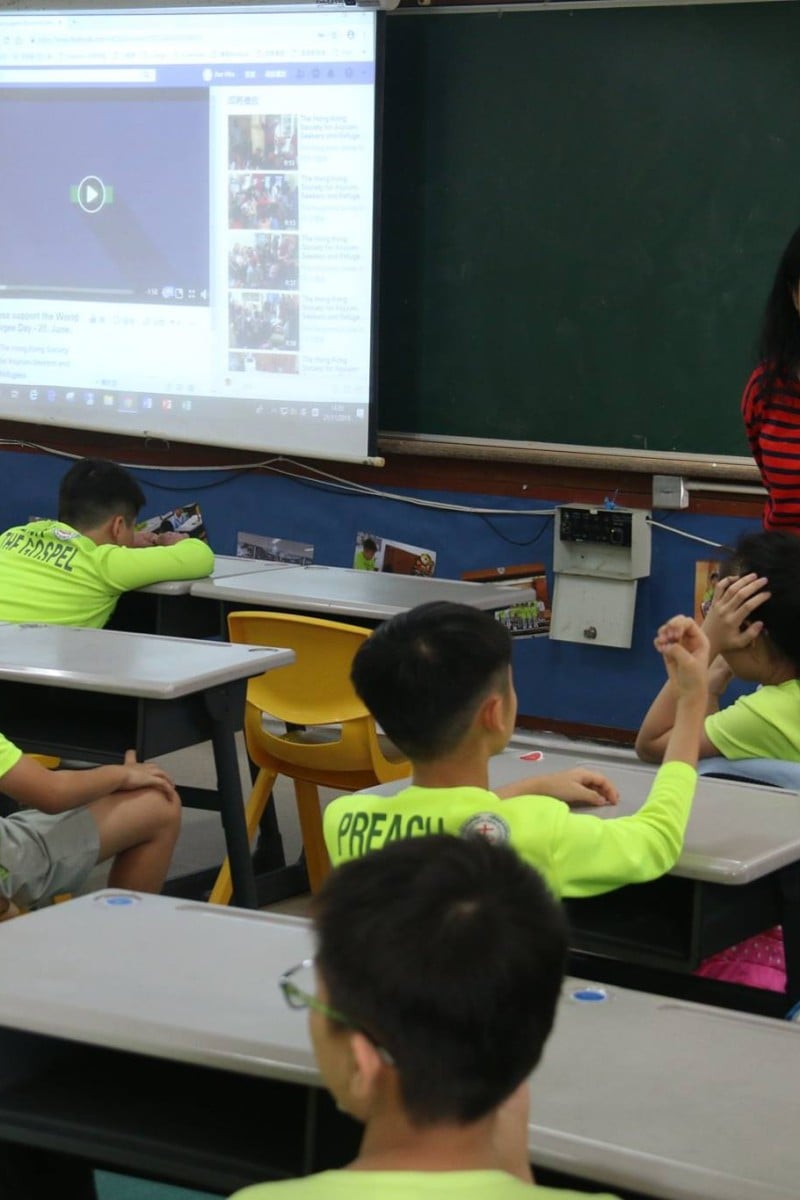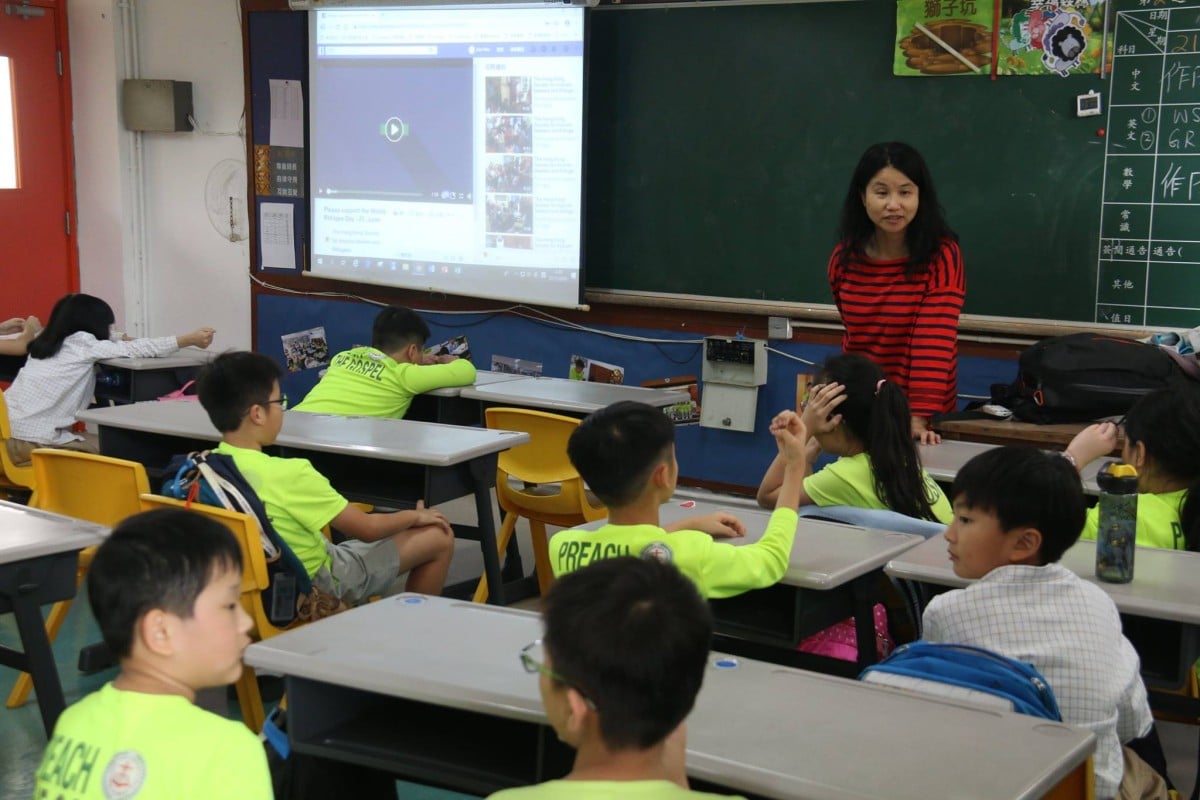
Providing support for asylum seekers and refugees in Hong Kong with volunteer students from EdUHK
Sponsored Feature
 Dr Isabella Ng explains to primary students about the refugee situation in Hong Kong.
Dr Isabella Ng explains to primary students about the refugee situation in Hong Kong.Back in November 2014, Dr Isabella Ng founded the Hong Kong Society for Asylum Seekers and Refugees (HKSASR) to promote rights, provide support and improve overall conditions.
The organisation recently embarked on a year-long project to raise public awareness of the issues asylum seekers and refugee face in Hong Kong and to foster inclusion in the broader community. They are doing this with the help of volunteers, some of whom are students at The Education University of Hong Kong (EdUHK) where Dr Ng is an Assistant Professor and Associate Head (Teaching and Learning) with the Department of Asian and Policy Studies (APS) of the Faculty of Liberal Arts and Social Sciences (FLASS).
Her work with students taking programmes like the Bachelor of Social Sciences (Honours) in Greater China Studies (BSS (Hons) GCS) helps them see the connection between their studies and ways to have a real impact in the wider world.
Working alongside Dr Lee Siu-yau, Associate Professor and Programme Leader, she encourages students to develop a fuller understanding through the combination of academic study and experiential learning - and to share that with others.
“As an educator, I’ve learned that students may know things that I don’t,” Dr Ng says. “They have led me to discover new things. We are equals in that we each contribute by adding our own experience and value to a project.”
With this programme, Dr Lee noted, students learn the academic theory in the classroom and have opportunities to apply their knowledge in practical situations within the local community, which often require change and innovative thinking.
This might involve initiatives to help the elderly, running a playgroup for underprivileged children, volunteering to help asylum seekers and refugees, or a wide range of other activities.
Students who opt to work with the HKSASR may start out with certain preconceptions, which can be somewhat negative. However, once they have a better understanding of the plight and circumstances of the asylum seekers and refugees – and when they get to know them as individuals – the students become highly motivated, wanting to offer meaningful assistance and effect positive change.
Those they are looking to help cannot work legally in Hong Kong and, therefore, are condemned to living in poverty in one of the world’s most expensive cities. They may speak only limited Cantonese and English and are not adept at navigating the legal, educational and other administrative systems which regulate everyday life.
Learning outside the classroom: the benefits of the exchange programme at EdUHK
Significantly too, many of the staff in government departments dealing with asylum seekers and refugees have no special training to deal with the issues that inevitably come up. Furthermore, in Hong Kong in general, there is a basic lack of awareness and understanding about this group of people, their stories, and the challenges they must face.
So, in order to make a real difference, the student volunteers typically spend hours learning about the judicial review process. By doing that, they are better placed to negotiate it, knowing what forms must be filed, what supporting documentation is required, and how to present a case to a judicial review board. In some instances, they may even do this without the support of a duty lawyer.
Realising they can effect change, thereby improving the lives of these individuals and families, the students take great care in examining each case and assembling the facts. They often become experts out of necessity and, in due course, are keen to make the general issues known to a wider audience.
“Some of our students have gone on to further studies so they can meet the current worldwide challenges by exploring policy problems and possible solutions,” Dr Ng said. “Some engage in advocacy work, some go on to work for the Immigration Department, while others work in communications for private companies.”
Applying the principles of psychology in marketing and consumer research
Dr Lee added that graduates have an awareness of global issues and the Greater China perspective. They also possess excellent communication and community engagement skills, which make them highly employable.
“Our graduates have many attributes that employers look for, including analytical skills, strategic thinking, creativity, and leadership skills – all of which are highly transferable,” Dr Lee said.